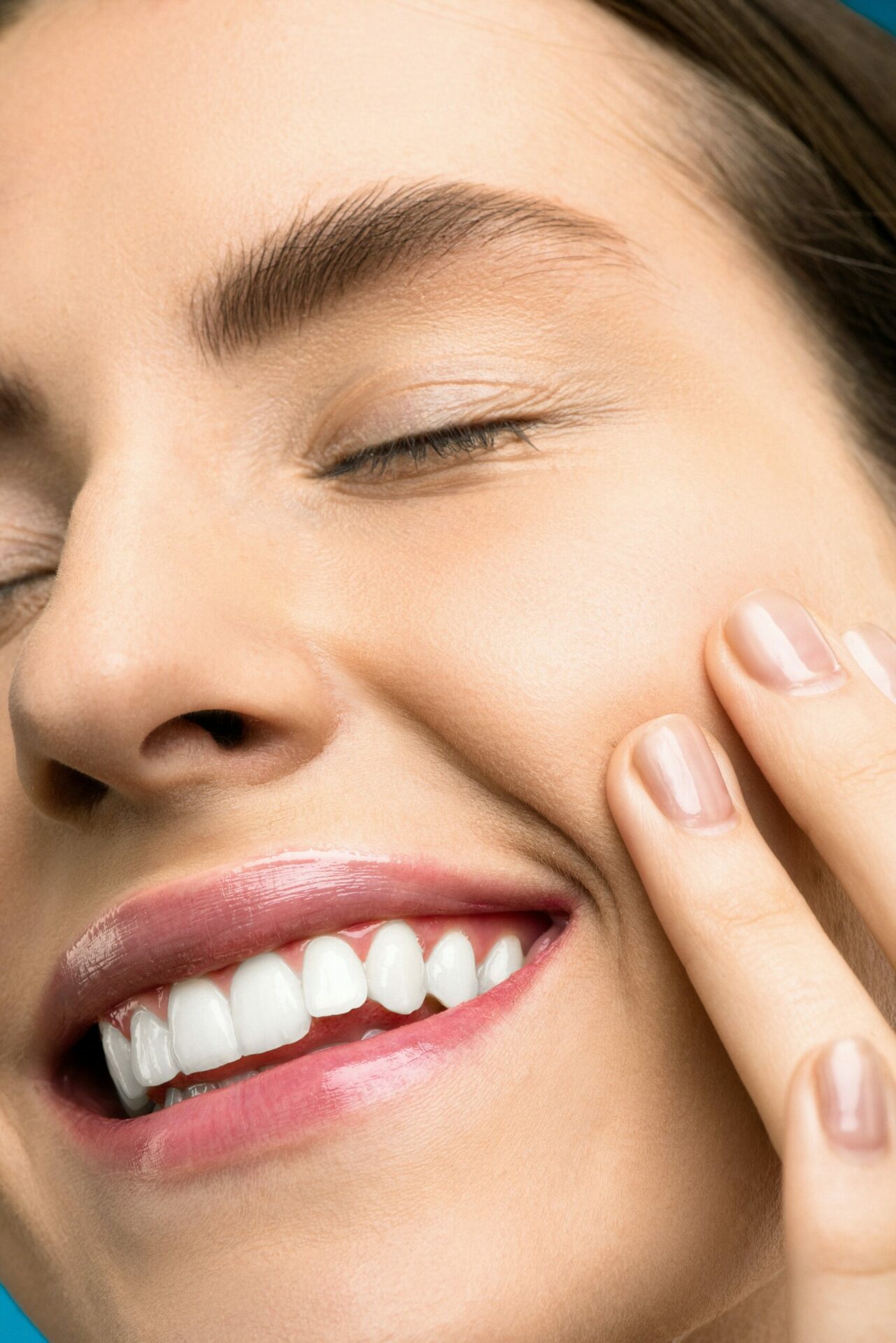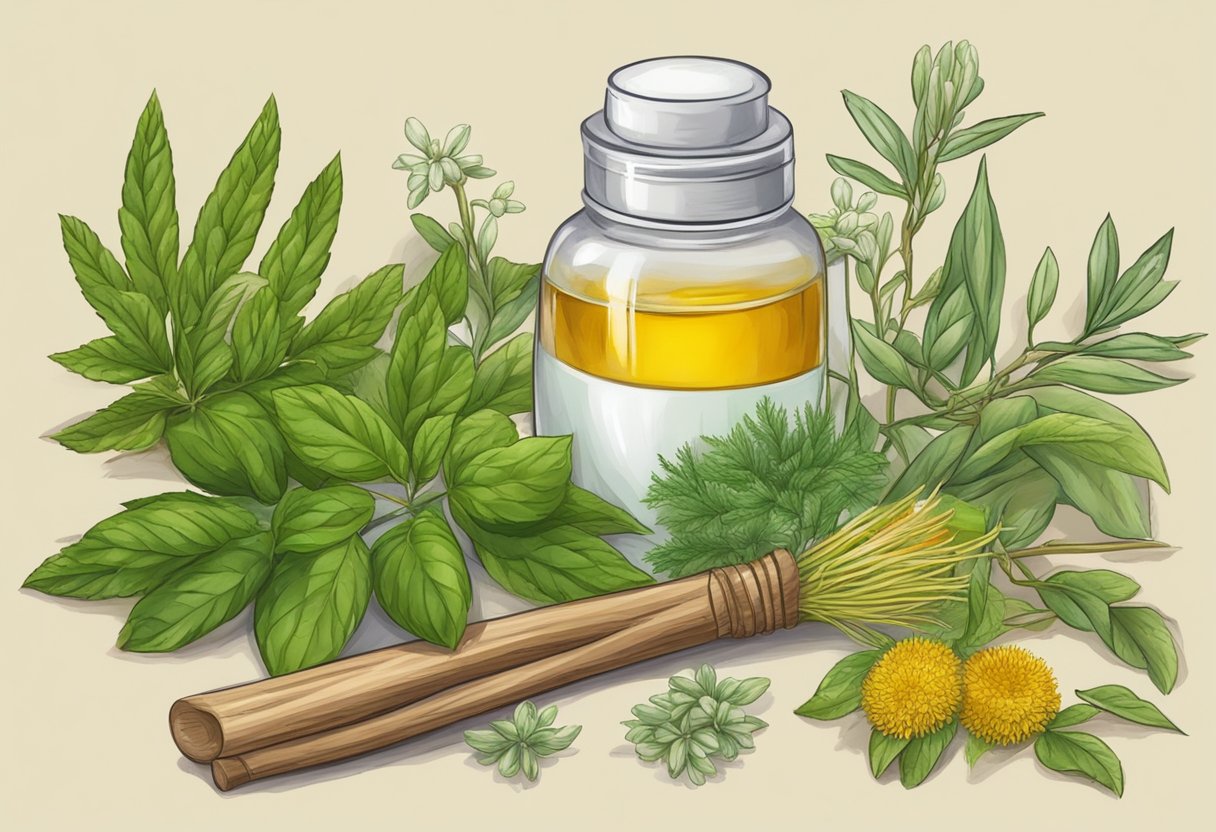Introduction Herbs for Tooth Decay
Tooth decay is a common dental issue that affects millions of people worldwide. One of the primary causes of tooth decay is the buildup of plaque, which contains bacteria that produce acids that break down tooth enamel. When left untreated, tooth decay can lead to cavities, infections, and even tooth loss. While conventional dental treatments are available to address tooth decay, there has been growing interest in using herbs for tooth decay and natural remedies as an alternative or complementary approach to maintaining oral hygiene.
Disclaimer: This article is provided for informational purposes only and should not replace professional medical advice. Please consult with a qualified healthcare practitioner or herbalist before using any herbal remedies.
Herbs for tooth decay have been used in traditional medicine for centuries, offering a natural way to maintain dental health and prevent cavities. These herbs often possess antimicrobial and antiseptic properties, which can help in fighting the bacteria responsible for tooth decay and maintaining a healthy balance of oral flora. Some common plants used for dental care, such as Rhus Vulgaris and Lantana Trifolia, have been found to be effective in promoting overall oral hygiene.

Incorporating these herbs into your dental care routine is a simple and natural way to improve your oral health and deter tooth decay. By understanding their benefits and how to use them properly, individuals can take a proactive approach to maintaining their dental health and preventing potential issues down the line.
Understanding Tooth Decay
Tooth decay, also known as dental caries or cavities, is a common dental issue that occurs when the hard, outer layer of the tooth, called the enamel, becomes damaged. The enamel is the strongest tissue in the human body, primarily composed of minerals. Over time, a combination of factors can cause the enamel to weaken and lose minerals, ultimately leading to the formation of dental cavities.
Cavity-causing bacteria in the mouth produce acids that break down the tooth enamel when consuming sugars or starches found in various foods and drinks. As the acids gradually demineralize the enamel, white spots may appear on the tooth’s surface, signifying the initial stage of tooth decay. If not dealt with promptly, the decay can progress further, reaching the inner layer of the tooth called the dentin, and ultimately causing the formation of a cavity.
Incorporating natural herbs in dental care routines has gained popularity in recent years as a means to promote oral health and combat tooth decay. Some herbs are known for their antimicrobial and antiseptic properties, which can be beneficial in preventing the growth of cavity-causing bacteria and maintaining healthy teeth and gums. Two common plants, Rhus Vulgaris and Lantana Trifolia, are often used as chewing sticks and are rich in these properties, providing effective dental care when used regularly.

It is crucial to be aware of the early signs of tooth decay and adopt preventive measures. This includes maintaining good oral hygiene, utilizing fluoride products, and incorporating an appropriate diet into one’s lifestyle. With a balanced approach, incorporating natural herbs alongside conventional dental care methods, individuals can effectively manage the health of their teeth and reduce the risk of dental cavities.
Essential Oils as Antibacterial Agents
Coconut Oil
Coconut oil is gaining recognition for its wide range of health benefits, particularly its potential as an antibacterial agent. It has been found to exhibit strong antimicrobial properties due to the presence of lauric acid, which is known for its ability to kill harmful bacteria, including those responsible for tooth decay 1. When incorporated into dental hygiene routines, coconut oil can help maintain a healthy oral environment, reduce plaque buildup, and prevent the growth of cavity-causing bacteria.
Cinnamon Oil
Cinnamon oil is another potent essential oil with impressive antibacterial properties. It is derived from the bark of the cinnamon tree and has been traditionally used for various health issues, including dental problems. Studies have shown that cinnamon oil is effective against a wide range of oral pathogens and may help to reduce tooth decay and gum disease 2. When used in the form of a mouthwash or toothpaste, cinnamon oil offers an alternative natural solution to conventional oral care products in combating harmful bacteria and maintaining overall oral health.
Tea Tree Oil
Tea tree oil is a powerful essential oil with a long history of use for its antimicrobial and anti-inflammatory properties. It is derived from the leaves of the Melaleuca alternifolia plant and has been widely used in traditional medicine for the treatment of various skin and oral ailments. Research has demonstrated that tea tree oil is effective in inhibiting the growth of numerous harmful bacteria, including those responsible for tooth decay 3. Incorporating tea tree oil into dental hygiene practices can help to prevent bacterial growth, reduce plaque accumulation, and protect teeth from decay.
By using essential oils such as coconut oil, cinnamon oil, and tea tree oil, the mouth’s overall environment can be maintained, supporting healthy teeth and gums. These natural antibacterial agents can be valuable additions to oral care routines, offering an alternative approach to conventional oral care products.

Herbs and Natural Remedies for Tooth Decay
Neem Sticks
Neem sticks have been traditionally used in many cultures as an effective tool for oral care. Chewing on neem sticks can help clean your teeth, freshen your breath, and maintain healthy gums. The antibacterial properties of neem can help fight the bacteria that cause tooth decay and cavities.
Green Tea
Green tea is known for its antioxidant and anti-inflammatory properties, which can benefit oral health as well. Drinking green tea regularly can help in reducing plaque formation and bacterial growth in your mouth, thus preventing tooth decay.
Licorice Root
Licorice root is a popular Chinese herb with numerous health benefits, including oral health. It has antibacterial compounds that can help fight harmful bacteria in your mouth, preventing tooth decay and cavities. Consuming licorice root in the form of tea or using it as a mouthwash can be beneficial for your dental health.
Holy Basil
Holy basil, also known as Tulsi, is a common herb used in Ayurvedic medicine for its numerous health benefits. It has antimicrobial properties that can help combat the bacteria causing tooth decay and gum diseases. You can use holy basil leaves to make a mouthwash or simply chew on the leaves to promote oral health.

Thyme Leaves
Thyme leaves are known to possess antibacterial and anti-inflammatory properties, which can be beneficial in preventing tooth decay and maintaining overall oral health. Adding thyme leaves to your diet or using it as a mouthwash can help fight harmful bacteria in your mouth and reduce plaque formation.
Dental Health and Oral Hygiene
Maintaining good dental health and practicing proper oral hygiene are essential to preventing tooth decay and other oral health issues. A crucial aspect of keeping your teeth and gums healthy is the consistent removal of dental plaque, a sticky film of bacteria that forms on tooth surfaces.
To ensure good oral health, it’s important to brush your teeth at least twice a day, using a toothbrush with soft bristles and fluoride toothpaste. Fluoride is an essential element that helps strengthen tooth enamel and prevent cavities. Regular flossing is another vital component, as it removes plaque and food particles from between teeth and under the gumline, areas that toothbrush bristles cannot effectively reach.
A healthy diet plays a significant role in promoting oral health. Consuming a balanced diet rich in vitamins and minerals can help maintain the strength and integrity of your teeth. Additionally, limiting sugary foods and beverages can reduce the risk of tooth decay, as bacteria in dental plaque convert sugar into acids that can erode tooth enamel.
Having a well-functioning salivary gland is also vital, as saliva production helps neutralize acids in the mouth and wash away food particles and bacteria. Staying hydrated, chewing sugar-free gum, or using fluoride mouthwashes can help stimulate saliva production and promote good oral health.
Some potent herbs have also been known to potentially aid in maintaining dental health and preventing oral diseases, such as myrrh, which has been used in traditional Chinese medicine for dental treatment.
By adhering to a dental care routine that includes regular brushing, flossing, and healthy dietary choices, you can better ensure your teeth and gums stay healthy and resilient against tooth decay and other oral health issues.
Preventing and Reversing Tooth Decay
Tooth decay is a common dental issue that can lead to cavities, pain, and even tooth loss. Fortunately, there are various herbs and natural remedies that can support a healthy mouth and contribute to the prevention and reversal of tooth decay. Many of these herbs are part of the mint family, known for their beneficial properties in oral health care.
One effective way to prevent tooth decay is to maintain a good oral hygiene routine. Brushing and flossing regularly, as well as avoiding sugary foods and drinks, contribute to a healthy mouth environment. Incorporating certain herbs into your routine can also enhance oral health. For instance, using a mouthwash containing peppermint oil, a member of the mint family, can help freshen the breath and combat harmful bacteria.

In some cases, it is possible to reverse cavities and repair early-stage tooth decay. This process, called remineralization, relies on the replenishment of essential minerals like calcium and phosphate. One natural solution to promote remineralization is to use a toothpaste containing fluoride, which has been proven effective in strengthening tooth enamel.
Additionally, herbs like cloves and thyme have been found to have antimicrobial and anti-inflammatory properties, making them a good idea to include in your oral care routine. Clove oil can be used for temporary relief from toothaches and to help manage bacterial growth responsible for tooth decay. Meanwhile, thyme oil can help combat bad breath and improve gum health.
Paying attention to overall health plays a significant role in maintaining a healthy mouth and preventing tooth decay. Adequate hydration, a balanced diet rich in vitamins and minerals, and regular dental check-ups are essential components of oral well-being.
In conclusion, the best way to prevent and reverse tooth decay is through a combination of good oral hygiene practices, mindful dietary choices, and the use of natural remedies like herbs from the mint family. By prioritizing oral health and incorporating these strategies, one can maintain a healthy mouth and potentially avoid tooth decay-related issues.
Importance of Diet in Dental Health
A balanced and nutritious diet plays a crucial role in maintaining not only overall health, but also dental health. Poor dietary choices, such as consuming sugary foods and beverages, can lead to tooth decay and other dental issues. In this section, we will discuss the importance of diet in dental health and how certain foods can affect oral health.

Frequent consumption of sugary foods and snacks can increase the risk of developing dental caries. Bacteria in the mouth thrive on sugar, producing acids that can damage tooth enamel and eventually lead to tooth decay. Therefore, it is essential to limit the intake of sweets, candies, and other sugary items to protect teeth from damage.
Fruit juices, despite being a source of vitamins and antioxidants, are also high in sugar content. Regular consumption of fruit juices can lead to tooth decay, as the natural sugars present in them can contribute to enamel erosion. It is better to opt for fresh fruits instead of fruit juices, as the fiber content in whole fruits helps to clean teeth and remove harmful bacteria.
Dairy products are an essential component of a balanced diet, providing much-needed calcium, proteins, and vitamins. However, some dairy products, like flavored yogurts and flavored milk, contain added sugars that can adversely affect dental health. Opting for natural, unflavored dairy products can provide the same nutritional benefits without the harmful effects of added sugars.
Phytic acid, which is commonly found in whole grains, seeds, nuts, and legumes, can interfere with the absorption of minerals such as calcium and magnesium, both of which are essential for maintaining strong and healthy teeth. Soaking or fermenting foods that are rich in phytic acid can help reduce its impact on mineral absorption, thus benefiting dental health.
In conclusion, a balanced diet that includes a variety of nutrient-rich foods can significantly contribute to good dental health. Limiting the consumption of sugary snacks, fruit juices, and dairy products with added sugars, and being mindful of phytic acid in certain foods can help maintain strong and healthy teeth, preventing tooth decay and other dental issues.
Clinical Trials and Research on Herbal Remedies
Clinical trials have been conducted to investigate the effectiveness of herbal remedies in preventing tooth decay and improving oral health. A study evaluated the efficacy of a herbal mouthwash composed of Echinacea, Golden seal, Calendula, and Grapefruit seed extract, finding it to be potentially helpful in dental care.
Another research explored various herbal extracts in dentistry, such as antimicrobial plaque agents, antiseptics, antioxidants, antimicrobials, and antifungals. Some of the herbal remedies can also aid in reducing inflammation and preventing the release of histamine.
An important finding revealed that certain chewing sticks from ancient Ayurveda have anti-cariogenic properties, and Amla (Emblic myrobalan) has been shown to be a general rebuilder of oral health. Furthermore, it is suggested that the practice of oil pulling using these traditional herbs can have a positive impact on systemic health.
Several herbs have been assessed for their potential to support dental care, including Bloodroot, Caraway, Chamomile, Echinacea, Myrrh, Peppermint, Rosemary, Sage, Thyme, Aloe Vera, and Propolis. A review of these herbs in dentistry indicates that they may offer promising alternatives to current treatments.
One of the main active ingredients in Galla Chinensis, an herb used for oral care, is gallotannin. New findings from a research team have highlighted the potential benefits of using herbal adjuncts alongside conventional treatments like scaling and root planing (SRP) or supragingival debridement (SPD). These herbal products showed superior clinical outcomes compared to placebo or no adjuncts, and in some cases, even better outcomes than chlorhexidine.
In summary, clinical trials, research efforts, and new findings demonstrate the potential of herbal remedies and active ingredients, like those found in Galla Chinensis, in the prevention and treatment of tooth decay and overall oral health.
Conclusion
Incorporating herbs into your oral hygiene routine can help support overall dental health and combat tooth decay. Herbs such as neem, clove, and peppermint have been known to provide relief from dental issues and promote a healthy oral environment.
Several medicinal plants possess antibacterial properties that specifically target cariogenic bacteria, such as Streptococcus mutans. These bacteria are responsible for converting dietary sugars into acids that dissolve the tooth structure and cause decay. By using herbs with antibacterial properties, you can effectively prevent the growth of such bacteria.

Herbal oral hygiene products may be beneficial for individuals looking to reduce their exposure to chemicals found in traditional oral care items. As they come from natural sources, these products might have fewer side effects, provided you are not allergic to any of the specific ingredients.
It is essential to note that relying solely on herbal remedies may not be enough to prevent or treat more advanced stages of tooth decay. In combination with regular dental check-ups and a comprehensive oral care routine, including brushing, flossing, and using mouthwash, these herbs can be a valuable addition in maintaining a healthy smile.
Remember that the effectiveness of these herbs may vary depending on the individual, and before making any significant changes to your oral care routine, it is advisable to consult with your dentist or healthcare provider.







